🐕 Are Golden Retrievers Hypoallergenic Dogs? No, Here's Why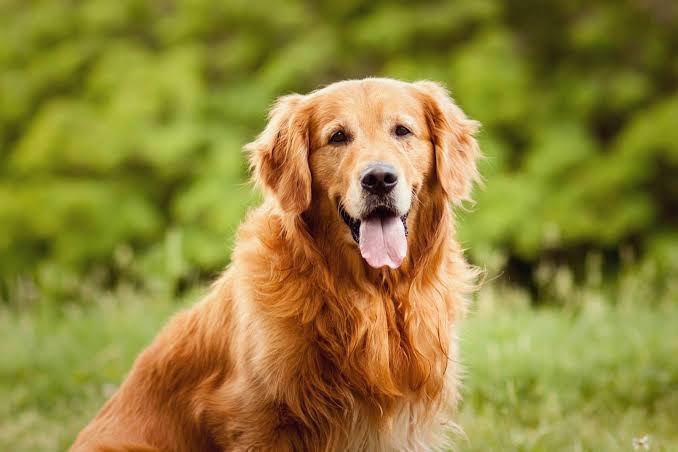
🔍 Quick Facts: Golden RetrieverHypoallergenic: ❌ No
Shedding Level: 🔴 High
Grooming Needs: 🟡 Medium-High
Good for Allergies: ❌ No
Size: Large
AKC Rank: #3 Most Popular
⚡ Quick AnswerNo, Golden Retrievers are not hypoallergenic dogs. Golden Retrievers have a double coat that sheds heavily year-round, producing significant amounts of dander and allergens. Their beautiful, fluffy coat is actually one of the main reasons they're unsuitable for people with dog allergies.
⚠️ Important for Allergy Sufferers: Golden Retrievers rank among the worst dog breeds for people with allergies due to their high shedding, substantial dander production, and grooming requirements that can spread allergens throughout your home.
 ⬆️ Back to Menu ⬆️ Back to Menu🧬 What Makes a Dog Hypoallergenic?Understanding what makes a dog hypoallergenic is crucial before examining why Golden Retrievers don't qualify. Hypoallergenic dogs are breeds that produce fewer allergens, making them more suitable for people with allergies. The primary factors that determine a dog's hypoallergenic status include: Coat Type: Dogs with hair instead of fur, or those with curly, non-shedding coats tend to trap dander rather than releasing it into the air. Shedding Level: Less shedding means fewer allergens spread throughout your home. The protein Fel d 1 (found in dander) is the main culprit behind allergic reactions. Saliva and Skin: All dogs produce allergens in their saliva and skin cells, but some breeds produce significantly less than others. Interesting Fact: According to the American Kennel Club, no dog breed is 100% hypoallergenic. However, some breeds produce up to 85% fewer allergens than high-shedding breeds like Golden Retrievers. ❌ Why Golden Retrievers Are Not Hypoallergenic
🌪️ Shedding PatternGolden Retrievers are heavy shedders year-round, with two major shedding seasons in spring and fall. During these peak periods, they can shed enough hair to fill a vacuum cleaner bag weekly. Their shedding is so significant that many owners describe it as "snowfall" throughout their homes. Statistics:Golden Retrievers shed constantly throughout the year, with noticeably heavier shedding in spring and fall. 🧥 Coat Type and CharacteristicsGolden Retrievers possess a double coat consisting of:
This double-coat system is specifically designed to shed seasonally, releasing accumulated dander and allergens directly into your living environment. 
🦠 Dander ProductionGolden Retrievers are prolific dander producers. Their large size combined with active shedding means they release substantial amounts of skin cells into the air. These microscopic particles can remain airborne for hours and settle on furniture, carpets, and clothing. Allergy Alert: Golden Retriever dander particles are particularly problematic because they're sticky and tend to cling to fabrics, making them difficult to remove even with regular cleaning. ✂️ Grooming RequirementsGolden Retrievers require daily brushing and professional grooming every 6-8 weeks. Ironically, while grooming helps manage shedding, it also temporarily increases airborne allergens during the brushing process. 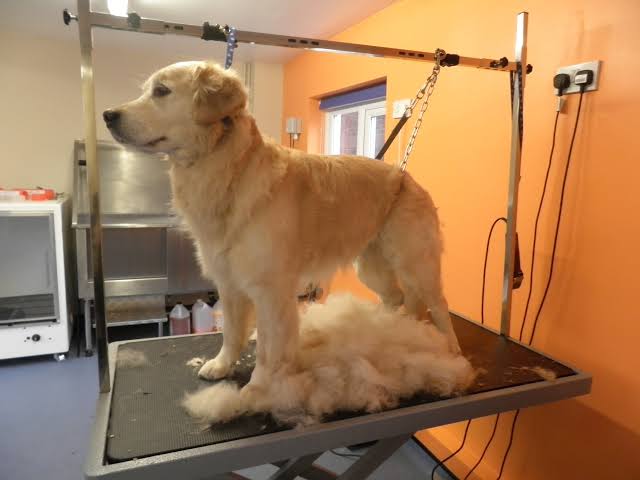 ⬆️ Back to Menu ⬆️ Back to Menu🤧 Golden Retrievers and Allergy SufferersFor people with dog allergies, Golden Retrievers present significant challenges. Most allergists specifically advise against Golden Retrievers for allergy sufferers due to their high allergen production. Common Symptoms When Living with Golden Retrievers:
Research Finding: A study by the American College of Allergy, Asthma & Immunology found that Golden Retrievers produce allergen levels that are 3-5 times higher than recommended safe levels for allergic individuals. 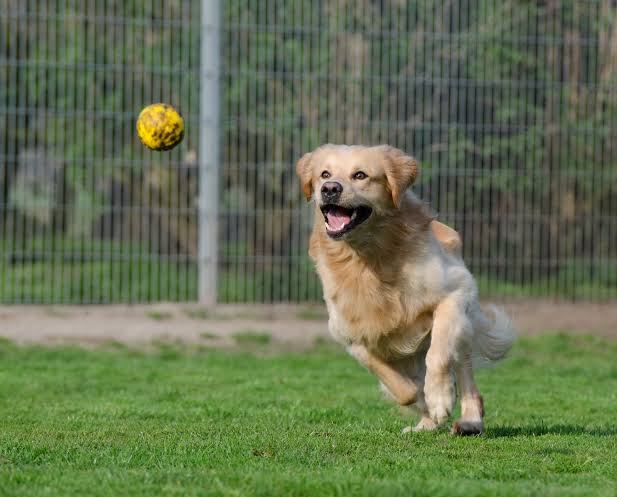
The severity of allergic reactions often increases over time with continued exposure, making Golden Retrievers particularly challenging for households with allergy sufferers. ⬆️ Back to Menu🔄 Alternatives for Allergy Sufferers🐕🦺 Similar Hypoallergenic BreedsIf you love the Golden Retriever's temperament but need a hypoallergenic alternative, consider these breeds:
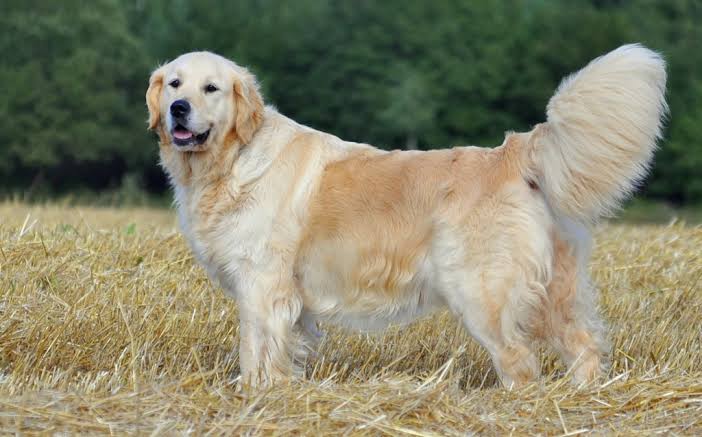
🎯 What to Look ForKey Characteristics of Allergy-Friendly Alternatives:
🔍 Find Your Perfect Hypoallergenic CompanionReady to find the perfect hypoallergenic dog breed for your lifestyle? Our interactive breed selector considers your specific needs, living situation, and allergy sensitivity to recommend the best matches. Discover which hypoallergenic breeds are perfect for your family in just 2 minutes! 💡 Tips for Golden Retriever Owners with Mild AllergiesIf you already own a Golden Retriever and have mild allergies, these strategies may help reduce allergen exposure: 
🧽 Regular Grooming
🌪️ Air Purification
🧹 Frequent Cleaning
🚪 Limiting Access
Important Note: These methods may reduce but cannot eliminate allergens. People with moderate to severe allergies may still experience symptoms despite these precautions.  ⬆️ Back to Menu ⬆️ Back to Menu🧪 Testing Before AdoptingIf you're considering a Golden Retriever despite allergy concerns, thorough testing is essential before making a commitment. Many people underestimate their allergic reactions until they live with a high-shedding breed full-time. ⚠️ Critical Warning: Spending 30 minutes with a Golden Retriever at a breeder or shelter is NOT sufficient to determine your allergic response. True reactions often develop after 24-48 hours of continuous exposure. 🏠 Proper Testing Protocol:
👨⚕️ Professional Consultation:
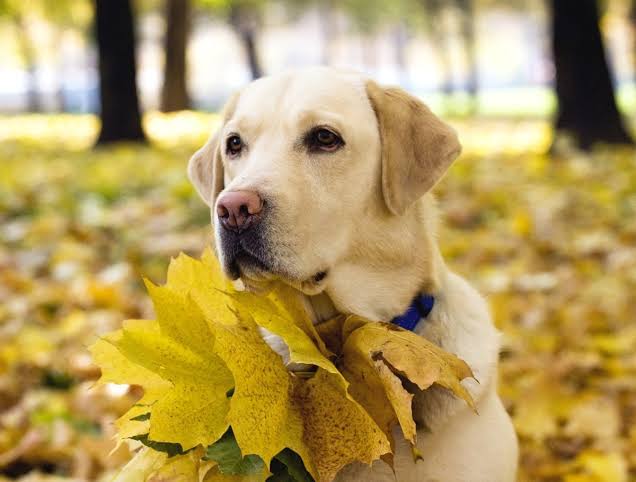
Remember that even if initial testing goes well, allergic reactions can worsen over time with continued exposure. Plan for this possibility before adoption. 📝 ConclusionGolden Retrievers are definitively not hypoallergenic dogs. Their double coat, heavy shedding pattern, and substantial dander production make them one of the most challenging breeds for allergy sufferers. While these beautiful dogs make wonderful family pets for non-allergic households, they can cause significant discomfort and health issues for people with dog allergies. Bottom Line: If you or anyone in your household has dog allergies, Golden Retrievers are not recommended. The constant allergen exposure can lead to worsening symptoms and potential health complications over time. Instead, consider the many hypoallergenic alternatives that can provide similar companionship without the allergic burden. Breeds like Standard Poodles, Portuguese Water Dogs, and certain Goldendoodle crosses offer comparable temperaments with significantly fewer allergens. 
Remember, choosing the right dog breed is a long-term commitment that should prioritize the health and comfort of all family members. Don't compromise on your family's well-being – explore hypoallergenic alternatives that can provide the same love and loyalty without the allergic reactions. ⬆️ Back to Menu❓ Frequently Asked QuestionsNo, all purebred Golden Retrievers shed heavily due to their genetic double coat. Some Golden Retriever mixes (like Goldendoodles) may shed less, but this depends entirely on which parent's coat genes are dominant. Golden Retrievers are generally moderate barkers. They bark to alert their families of visitors or unusual situations, but they're not typically excessive barkers like some smaller breeds. However, inadequately exercised or bored Golden Retrievers may bark more frequently. Golden Retrievers are not ideal for small apartments. These large, high-energy dogs need substantial space and daily exercise. In small spaces, they may become destructive or develop behavioral problems. They're better suited for homes with yards or very active apartment dwellers who can provide 2+ hours of daily exercise. Yes, Golden Retrievers are among the most trainable dog breeds. They consistently rank in the top 5 most intelligent dog breeds and are eager to please. They excel in obedience training, respond well to positive reinforcement, and can learn complex commands quickly. This makes them excellent choices for first-time dog owners who want a trainable companion. Golden Retrievers should not be left alone for more than 6-8 hours regularly. They're social dogs that thrive on human interaction and can develop separation anxiety, destructive behaviors, or depression when left alone for extended periods. If you work long hours, consider dog daycare, a dog walker, or another pet for companionship. Golden Retrievers are moderately energetic rather than naturally calm. Puppies and young adults (up to 3 years) are quite active and playful. They become calmer with age and adequate exercise, but they always retain a playful, friendly energy. They're not hyperactive, but they do need daily physical and mental stimulation to be well-behaved indoor companions. No, regular grooming cannot make Golden Retrievers hypoallergenic. While grooming can reduce the amount of loose hair and dander in your home, it cannot eliminate allergen production. In fact, the grooming process itself temporarily increases airborne allergens. Golden Retrievers will always produce substantial allergens regardless of grooming frequency. Goldendoodles (especially F1B generation) can be significantly better for allergies, but it's not guaranteed. F1B Goldendoodles (75% Poodle, 25% Golden Retriever) are more likely to inherit the Poodle's low-shedding coat. However, first-generation (F1) Goldendoodles may shed as much as Golden Retrievers. Coat type varies widely in mixed breeds, so individual testing is essential. | |||||||||||||||||||||
|
| |||||||||||||||||||||
| Переглядів: 155 | | | |||||||||||||||||||||
| Total comments: 0 | |
